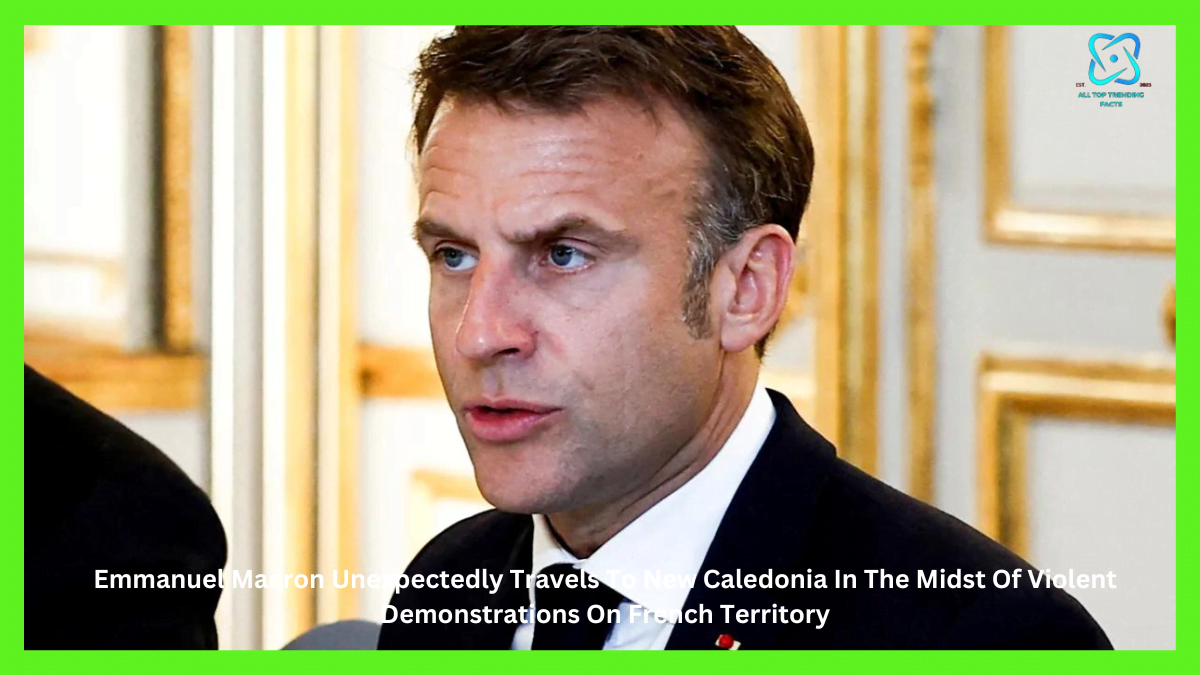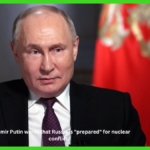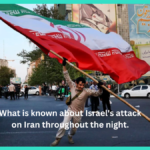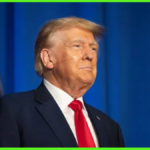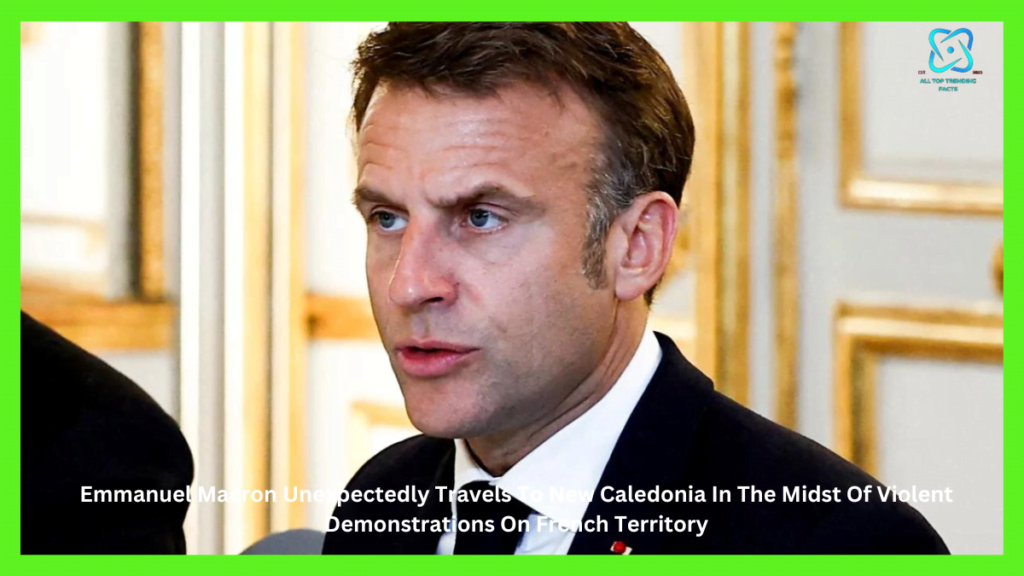
While colonial descendants want to stay in France, Indigenous Kanaks want independence, which has sparked new debate regarding France’s colonial past.
The French president, Emmanuel Macron, is on an unexpected visit to New Caledonia, a region in the French Pacific whose indigenous people have long wanted independence and which has seen days of deadly violence.
YOU CAN CHECK OUT THIS VIDEO FOR MORE INFORMATION
Following a Cabinet meeting on Tuesday, when the president announced his decision to travel the more than 33,000 kilometers (20,000 miles) round trip himself to the archipelago east of Australia, government spokesperson Prisca Thevenot stated, “He will go there tonight.”
In New Caledonia, violent conflicts, looting, and arson have left six people dead—two of them gendarmes—and hundreds more injured.
These events have sparked concerns about Macron’s management of France’s colonial past.
Tensions have existed for decades between the 270,000 Indigenous Kanaks who want independence for their archipelago and the descendants of colonists and other settlers who want to keep the island a part of France.
As the French legislature in Paris discussed changing the French Constitution to modify the voter lists in New Caledonia, violence broke out on May 13.
The measure’s opponents worry that it will further marginalize Kanaks, who were previously subjected to rampant discrimination and tight segregation regulations, and that it will favor pro-France politicians in New Caledonia.
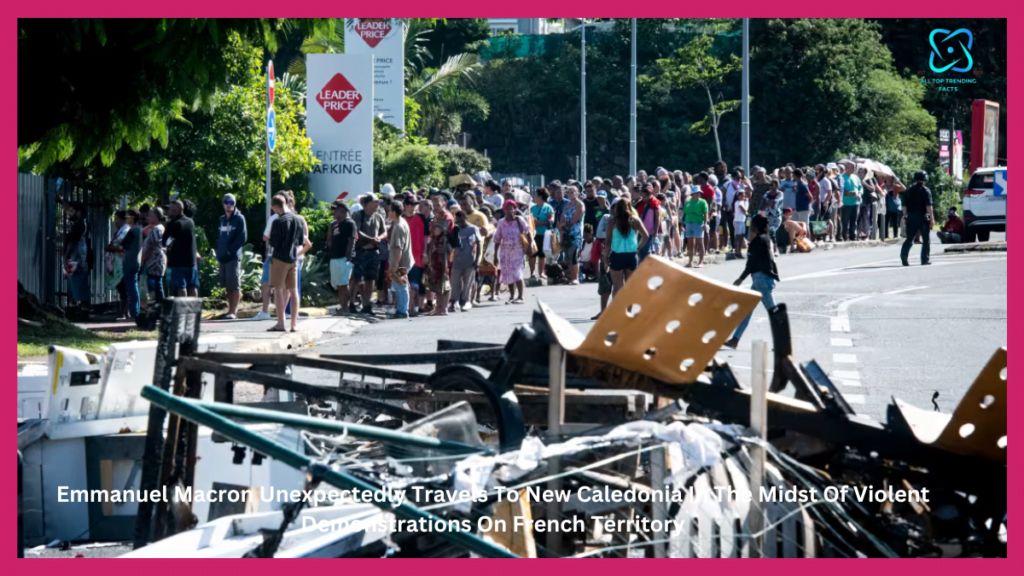
Since the 1980s, when France also imposed emergency measures on the island that became French in 1853 under Emperor Napoleon III, the violence in New Caledonia has been at its worst.
On Wednesday of last week, Paris proclaimed a minimum 12-day state of emergency on the island and quickly dispatched 1,000 reinforcements to support security forces that had lost control of portions of Nouméa, the capital.
Thevenot, a spokesperson for the administration, stated that “the priority is the return of order to allow dialogue to resume in New Caledonia in light of the outbreak of violence.”
We are clear: Before things get back to normal, a lot still needs to be done. The entire government is in motion.
Due to time zones and distance, Macron will arrive in New Caledonia on Thursday morning, according to his office, assuming he leaves on Tuesday night.
It stated that a one-day stay is anticipated for him.
Prime Minister Gabriel Attal informed parliament that Macron will meet with leaders in politics, business, civics, and youth with the goal of “renewing the thread of dialogue” in quest of “a comprehensive political agreement.”
Lawmakers observed a moment of silence in honor of the six individuals who died in the violence.
Along with the ministers of defense and foreign territories, Gerald Darmanin, the interior minister, announced his intention to attend alongside Macron.
During their visit, Macron and his ministers will be able to witness firsthand some of the devastation that has left parts of Nouméa off-limits.
People have been banding together to protect their homes and livelihoods, while pro-independence supporters have set up barricades and set fire to buildings and shops.
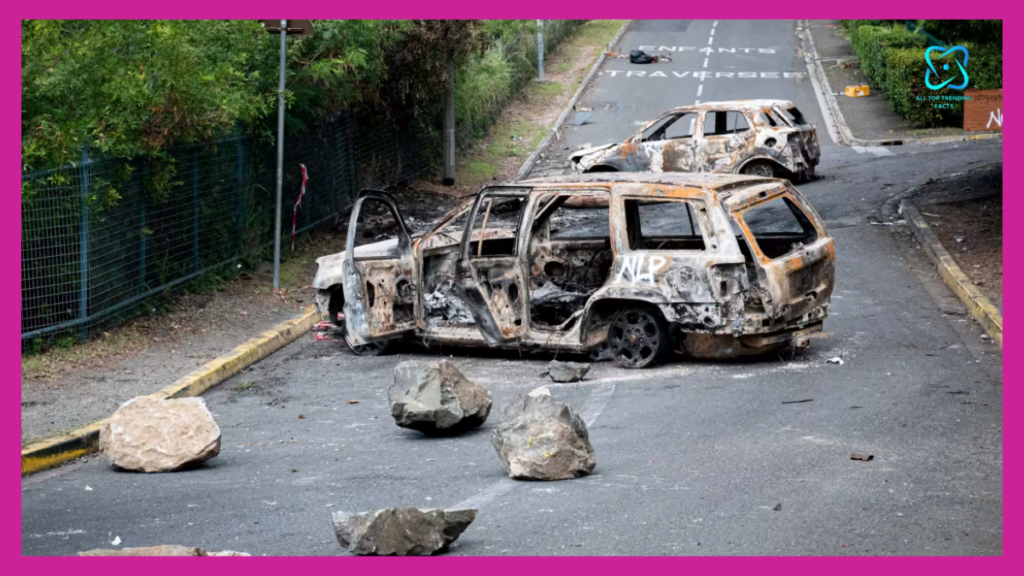
With emergency powers granted to the police and a curfew in place from 6 p.m. to 6 a.m., French officials claim security personnel are beginning to quell unrest. On Tuesday, they announced an additional 22 arrests, bringing the total to around 300.
A new conversation over France’s colonial heritage has arisen as a result of the bloodshed in New Caledonia.
Macron’s attempts to address that have mostly concentrated on Africa, where France was a colony and where recent requests for the withdrawal of French military have come from local dissatisfaction in certain countries.
Since the weekend, removing barricades and the burned-out remains of cars from the roadway leading to Nouméa’s international airport has been a top priority for French authorities in New Caledonia.
This has increased the likelihood that stranded visitors will be able to depart.
To start repatriating their citizens, Australia and New Zealand dispatched planes to New Caledonia on Tuesday.
Australian Foreign Minister Penny Wong announced that Australia would be working on additional evacuation flights after receiving approval from French authorities for two.
- There are 300 Australians in New Caledonia, according to the Australian Department of Foreign Affairs.
- It did not immediately clarify if the flights would rescue the thousands of other foreign nationals who were thought to be stuck.
- The government of New Zealand declared that roughly fifty of its residents will be evacuated.
- Foreign Affairs Minister Winston Peters stated, “New Zealanders in New Caledonia have faced a challenging few days— and bringing them home has been an urgent priority for the government.” “In the upcoming days, we are working on additional flights in collaboration with France and Australia.”
CLICK HERE FOR MORE POLITICS NEWS: POLITICS

“Hello Everyone” Myself Joydip DN, and I Live in Sylhet And I am a Seasoned Digital Marketer, Accomplished Content Writer, Experienced Blogger And Combines A Wealth of Experience In Online Marketing Trained From Freelancer Lab Academy, With A Strong Linguistic Proficiency, Evident In My Impressive IELTS Band Score. Holding An, MBA With A Major In Management Information System(MIS) From Leading University. I Am(Joydip) Seamlessly Integrates Strategic Business Insights With Technological Acumen To Deliver Organic And Impactful And Results-Driven Content In The Dynamic Digital Landscape. Contact with me: debnathjoydip4@gmail.com”

